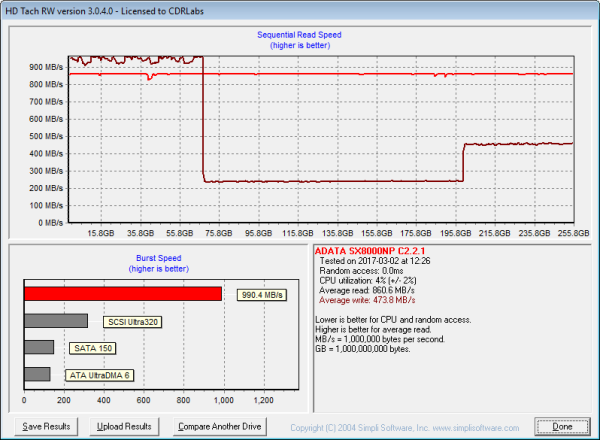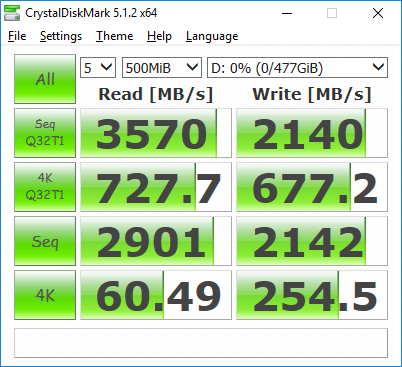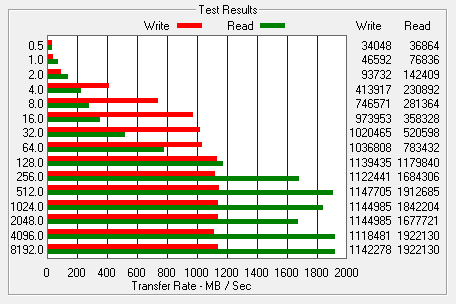The test system used in this review is equipped with an Intel Core i7-6700K CPU, GIGABYTE GA-Z170X-UD3 motherboard, 32GB (16GB x 2) of Crucial Ballistix Sport LT DDR4 memory, ADATA SU800 512GB SSD and a GIGABYTE GeForce GTX 1060 WINDFORCE OC 6G graphics card. For the operating system, I installed a fresh copy of Windows 10 Enterprise.
To test the performance of ADATA's XPG SX8000 SSD, I ran a series of benchmarks using CrystalDiskMark, HD Tach RW, ATTO Disk Benchmark, AS SSD, HD Tune Pro, Anvil's Storage Utilities, Iometer and PCMark 8. For comparison, I've also included test results from the Samsung 960 PRO, Toshiba OCZ RD400, Samsung 950 PRO, Toshiba OCZ VX500, ADATA Ultimate SU800, Plextor S2C, Crucial M300, Plextor M7V, PNY CS1311, OCZ Trion 150, PNY CS2211, Plextor M6V, Crucial BX200, OCZ Trion 100, Kingston HyperX Savage, Crucial MX200, OCZ Vector 180, Samsung SSD 850 EVO and Samsung SSD 850 PRO.

As I mentioned earlier, the XPG SX8000 is based on SMI's SM2260 controller chip. Looking at the screenshot above, you can see that it performs equally well with both incompressible (0%) and compressible (100%) data.
CrystalDiskMark 5.0.3:
First, I ran a few quick tests using CrystalDiskMark. This benchmark tool measures the performance of a storage device by testing its sequential read and write speeds as well as its random read and write speeds using blocks 512K and 4K in size.
According to ADATA, the 256GB version of the SX8000 is capable of reading at 2,000 MB/s and writing at 1,100 MB/s. Looking at the screenshot above, you can see that the drive had no problems reaching these speeds in CrystalDiskMark's sequential read and write tests.
HD Tach RW 3.0.4.0:
Next, I used HD Tach to test the SX8000's read, write and burst speeds as well as its seek times and CPU usage.

ADATA XPG SX8000 256GB
Looking at the screenshot above, you can see that the SX8000 had average read and write speeds of 860.6 MB/s and 473.8 MB/s respectively, as well as a burst speed of 990.4 MB/s. The screenshot also shows that, unlike most other MLC-based SSDs, the SX8000 uses some sort of SLC caching. The drive starts writing at about 950 MB/s and then drops to about 275 MB/s when the write operation exceeds the size of the cache.
ATTO Disk Benchmark 2.46:
I also used ATTO Disk Benchmark to test the SX8000's sequential read and write speeds. The tests are run using blocks ranging in size from 0.5KB to 8192KB and the total length set to 256MB.
When tested with ATTO, the SX8000's read speeds topped out at about 1,922 MB/s and its write speeds at 1,147 MB/s.





